-
 Bitcoin
Bitcoin $116800
0.06% -
 Ethereum
Ethereum $3916
2.20% -
 XRP
XRP $3.333
8.10% -
 Tether USDt
Tether USDt $1.000
0.02% -
 BNB
BNB $789.3
1.45% -
 Solana
Solana $177.6
2.58% -
 USDC
USDC $0.0000
0.02% -
 Dogecoin
Dogecoin $0.2232
4.03% -
 TRON
TRON $0.3384
0.01% -
 Cardano
Cardano $0.8005
4.26% -
 Stellar
Stellar $0.4651
11.58% -
 Hyperliquid
Hyperliquid $41.38
5.34% -
 Sui
Sui $3.828
2.87% -
 Chainlink
Chainlink $19.41
11.81% -
 Bitcoin Cash
Bitcoin Cash $581.4
0.02% -
 Hedera
Hedera $0.2623
3.12% -
 Avalanche
Avalanche $23.50
3.00% -
 Ethena USDe
Ethena USDe $1.001
-0.04% -
 Litecoin
Litecoin $121.8
0.85% -
 UNUS SED LEO
UNUS SED LEO $8.986
0.38% -
 Toncoin
Toncoin $3.359
1.47% -
 Shiba Inu
Shiba Inu $0.00001293
2.14% -
 Uniswap
Uniswap $10.61
4.95% -
 Polkadot
Polkadot $3.917
3.45% -
 Dai
Dai $1.000
-0.01% -
 Bitget Token
Bitget Token $4.461
1.26% -
 Cronos
Cronos $0.1516
2.47% -
 Monero
Monero $265.7
-5.07% -
 Pepe
Pepe $0.00001118
2.72% -
 Aave
Aave $283.4
3.76%
When buying Bitcoin at a low price and selling it at a high price, how to avoid the loss of handling fees caused by frequent transactions?
Minimize Bitcoin transaction fees by batching trades, using lower-fee networks like Lightning Network, and choosing exchanges with favorable fee structures. Strategic trading and long-term holding can further reduce costs.
Mar 21, 2025 at 10:28 pm
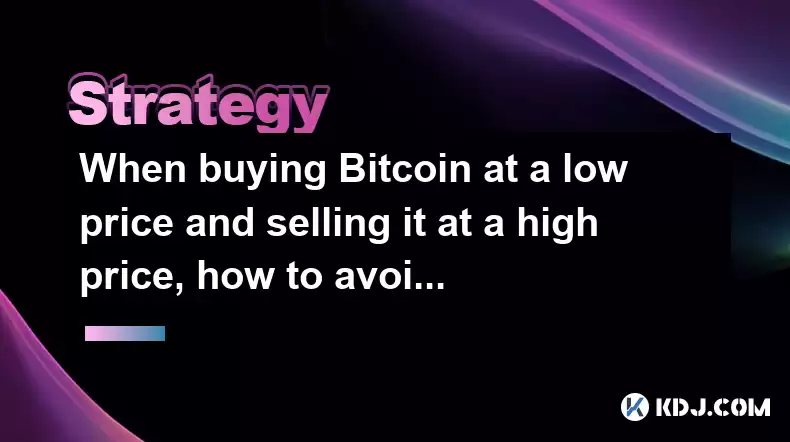
Key Points:
- Understanding transaction fees and their impact on Bitcoin trading profitability.
- Strategies for minimizing fees through batching transactions and choosing the right exchange.
- Utilizing lower-fee networks or layer-2 solutions for increased efficiency.
- The importance of considering the overall trading strategy and risk tolerance when managing fees.
- Exploring alternative strategies to reduce the frequency of trades.
When Buying Bitcoin at a Low Price and Selling it at a High Price, How to Avoid the Loss of Handling Fees Caused by Frequent Transactions?
The allure of buying low and selling high in the volatile Bitcoin market is undeniable. However, the seemingly small transaction fees can significantly eat into profits, especially with frequent trades. Minimizing these fees requires a strategic approach. Understanding the fee structure of your chosen exchange is the first step. Fees vary based on the network congestion and the transaction size.
Different exchanges have different fee structures. Some charge a flat fee per transaction, while others charge a percentage of the transaction value. Comparing fees across several exchanges before committing to one can save you money in the long run. Look for exchanges that offer tiered fee structures, potentially rewarding high-volume traders with lower fees.
One effective strategy to reduce fees is to batch your transactions. Instead of buying and selling Bitcoin multiple times individually, accumulate your desired amount before executing a single, larger transaction. This approach reduces the overall number of transactions, directly lowering the accumulated fees. This is particularly useful when accumulating Bitcoin over a period of time.
Network congestion directly impacts transaction fees. During periods of high network activity, fees surge. Monitoring network congestion levels through various blockchain explorers can help you time your transactions strategically. Aim to execute your trades during periods of lower network activity to secure lower fees.
Consider using lower-fee networks or layer-2 scaling solutions. While Bitcoin's main network (Layer 1) can be expensive, layer-2 solutions like the Lightning Network offer significantly cheaper and faster transactions. These solutions require a slightly more technical understanding, but the potential savings can be substantial for frequent traders.
Another way to avoid frequent transactions is to adjust your trading strategy. Instead of aiming for small, quick profits, focus on long-term price movements. Holding Bitcoin for an extended period, even if it means missing out on some short-term gains, can drastically reduce the impact of transaction fees on your overall profit. This approach reduces the need for constant buying and selling.
Careful selection of your trading platform plays a vital role. Some platforms offer features designed to minimize transaction fees, such as batching options or smart order routing. Explore these features to see if they align with your trading style and frequency. Understanding the nuances of these tools can save you considerable costs over time.
Many exchanges provide tools and resources to help users predict and manage fees. Familiarize yourself with these tools and use them to plan your transactions effectively. These resources often provide real-time fee estimates and historical data, allowing for informed decision-making.
Beyond minimizing transaction fees, consider the overall cost of your trading strategy. The time spent researching, monitoring, and executing trades also contributes to your overall cost. If your strategy results in frequent trades with minimal profit, re-evaluating your approach might be beneficial. Balance the potential for profit against the fees and time invested.
For traders with large Bitcoin holdings, the fees associated with moving significant amounts can be substantial. Consider using services that offer bulk transfer options, or consult with a financial professional experienced in cryptocurrency management to find the most cost-effective solutions for your situation.
Frequently Asked Questions:
Q: What are the typical transaction fees for Bitcoin?
A: Bitcoin transaction fees are variable and depend on network congestion. They can range from a few cents to hundreds of dollars during periods of high activity.
Q: Are there any ways to avoid paying transaction fees altogether?
A: No, there's no way to completely avoid transaction fees on the Bitcoin network. Fees are essential for securing and validating transactions. However, you can significantly reduce their impact through strategic planning.
Q: Is it better to use a centralized exchange or a decentralized exchange for Bitcoin trading?
A: The best choice depends on your priorities. Centralized exchanges often have lower fees but involve surrendering custody of your funds. Decentralized exchanges typically have higher fees but offer greater control over your assets.
Q: What is the Lightning Network, and how can it help reduce fees?
A: The Lightning Network is a layer-2 scaling solution for Bitcoin that allows for fast and cheap off-chain transactions. It's a more complex system but can dramatically reduce fees for frequent traders.
Q: How can I predict Bitcoin transaction fees?
A: Several blockchain explorers and tools provide real-time fee estimates based on current network congestion. Monitoring these resources helps in timing transactions for lower fees.
Disclaimer:info@kdj.com
The information provided is not trading advice. kdj.com does not assume any responsibility for any investments made based on the information provided in this article. Cryptocurrencies are highly volatile and it is highly recommended that you invest with caution after thorough research!
If you believe that the content used on this website infringes your copyright, please contact us immediately (info@kdj.com) and we will delete it promptly.
- BlockchainFX: The Crypto Presale Investors Can't Ignore
- 2025-08-08 19:10:12
- Pump.fun, Memecoins, Glass Full: Solana's Launchpad Wars Heat Up!
- 2025-08-08 18:50:12
- Crypto Market Heats Up: Altcoin Spree Drives Market Cap to $3.87T
- 2025-08-08 19:05:02
- Cardano (ADA) Price Gears Up: Open Interest Surges Amidst Key Resistance Retest
- 2025-08-08 19:15:42
- Bitcoin, Meme ICOs, and FOMO: Catching the Next Crypto Wave
- 2025-08-08 18:30:34
- OM, Investment, and Growth: Decoding the Latest Trends in Digital Assets
- 2025-08-08 18:30:34
Related knowledge
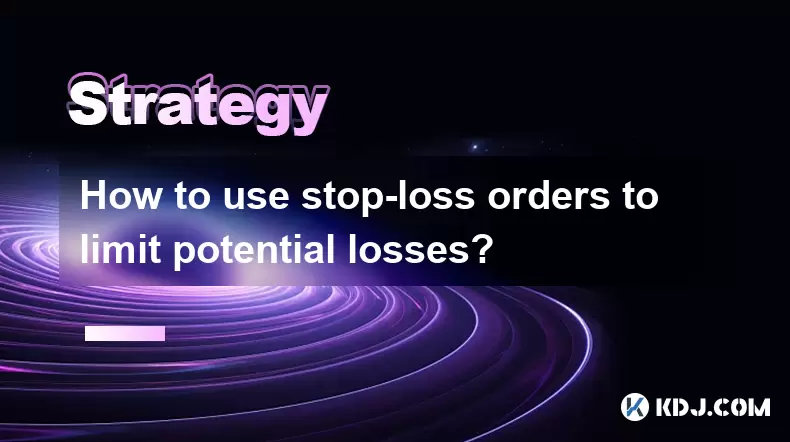
How to use stop-loss orders to limit potential losses?
Aug 08,2025 at 02:01pm
Understanding Stop-Loss Orders in Cryptocurrency TradingA stop-loss order is a risk management tool used by traders to automatically sell a cryptocurr...

How to read cryptocurrency charts and use technical analysis?
Aug 08,2025 at 11:08am
Understanding the Basics of Cryptocurrency ChartsCryptocurrency charts are graphical representations of price movements over time. These charts are es...
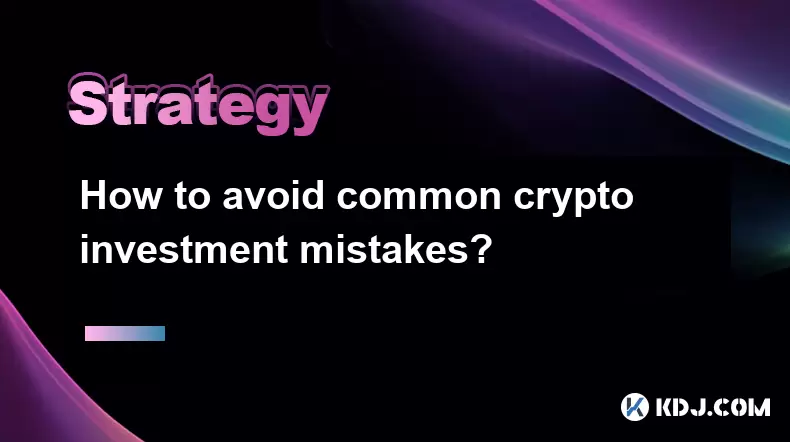
How to avoid common crypto investment mistakes?
Jul 13,2025 at 01:35am
Understanding the Risks of Crypto InvestmentInvesting in cryptocurrency can be highly rewarding, but it also comes with significant risks. One of the ...
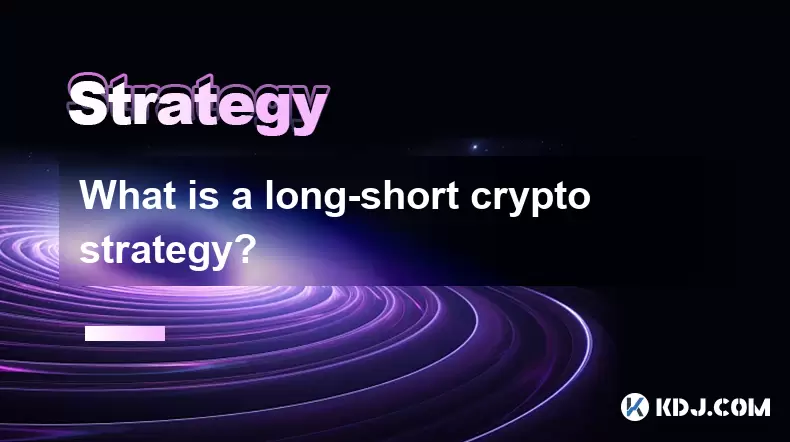
What is a long-short crypto strategy?
Jul 15,2025 at 10:56am
Understanding the Basics of a Long-Short Crypto StrategyA long-short crypto strategy is an investment approach where traders simultaneously take long ...
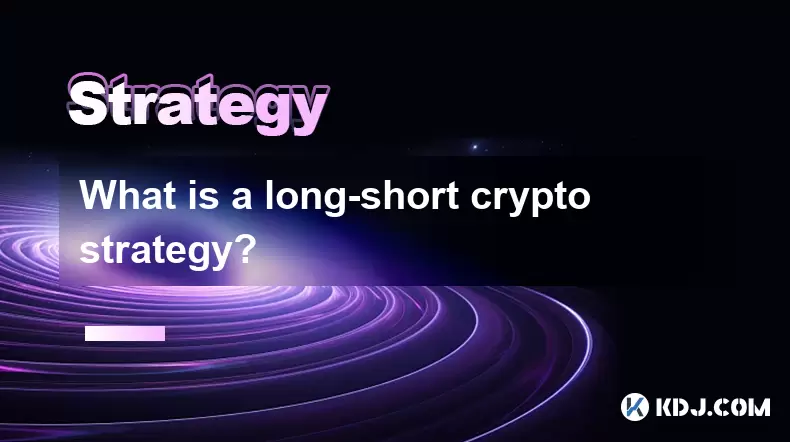
What is a long-short crypto strategy?
Jul 11,2025 at 01:28pm
Understanding the Basics of Long-Short Crypto StrategyA long-short crypto strategy is an investment approach where traders take both long and short po...
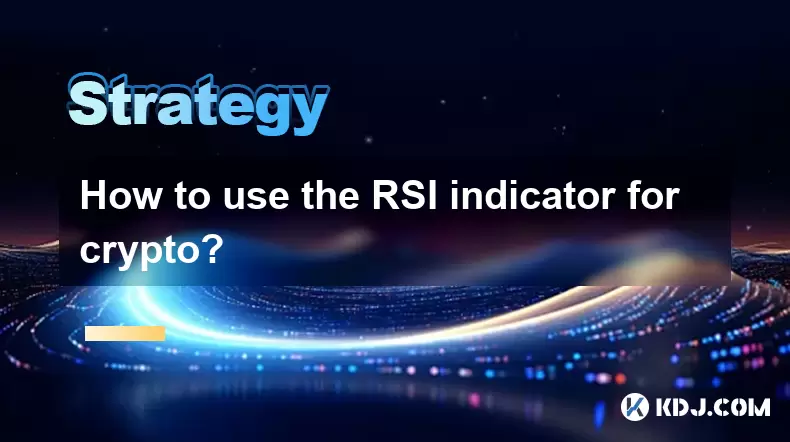
How to use the RSI indicator for crypto?
Jul 12,2025 at 03:56pm
Understanding the RSI Indicator in Cryptocurrency TradingThe Relative Strength Index (RSI) is a momentum oscillator used to measure the speed and chan...

How to use stop-loss orders to limit potential losses?
Aug 08,2025 at 02:01pm
Understanding Stop-Loss Orders in Cryptocurrency TradingA stop-loss order is a risk management tool used by traders to automatically sell a cryptocurr...

How to read cryptocurrency charts and use technical analysis?
Aug 08,2025 at 11:08am
Understanding the Basics of Cryptocurrency ChartsCryptocurrency charts are graphical representations of price movements over time. These charts are es...

How to avoid common crypto investment mistakes?
Jul 13,2025 at 01:35am
Understanding the Risks of Crypto InvestmentInvesting in cryptocurrency can be highly rewarding, but it also comes with significant risks. One of the ...

What is a long-short crypto strategy?
Jul 15,2025 at 10:56am
Understanding the Basics of a Long-Short Crypto StrategyA long-short crypto strategy is an investment approach where traders simultaneously take long ...

What is a long-short crypto strategy?
Jul 11,2025 at 01:28pm
Understanding the Basics of Long-Short Crypto StrategyA long-short crypto strategy is an investment approach where traders take both long and short po...

How to use the RSI indicator for crypto?
Jul 12,2025 at 03:56pm
Understanding the RSI Indicator in Cryptocurrency TradingThe Relative Strength Index (RSI) is a momentum oscillator used to measure the speed and chan...
See all articles

























































































